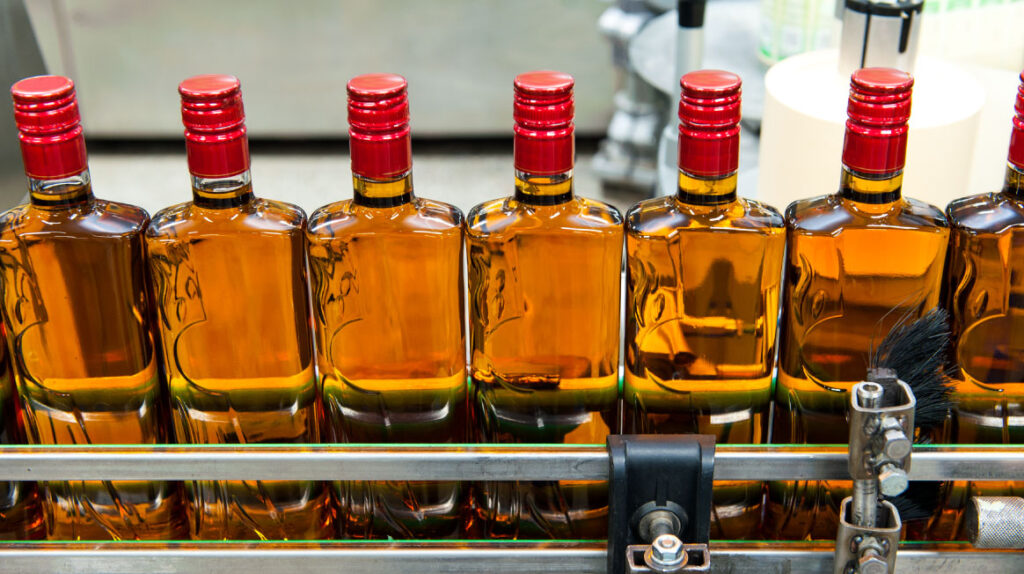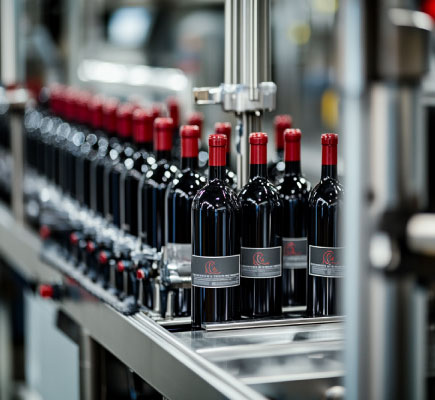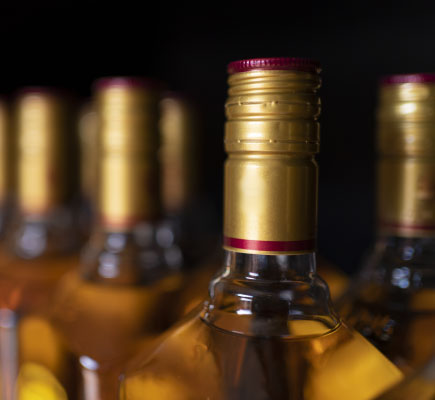
Comprehensive Guide to Spirits Bottling
The bottling of alcoholic spirits is a meticulous process that ensures quality, compliance, and brand integrity. It begins with preparing the spirit, which may involve dilution to the desired alcohol by volume (ABV). Bottles are then cleaned and sterilised before being filled with the spirit. Sealing follows, typically using caps or corks, to preserve the product. Labelling is a critical stage where Filmswork UK specialises in creating compliant and visually appealing labels that meet UK regulations. Finally, bottles are packaged for distribution. Each step is governed by UK tax laws and regulations to ensure safety and legal compliance.
Drinkswork Can Help With Bottling Spirits
Navigating the bottling process for spirits requires technical knowledge, regulatory compliance, and creative branding. Drinkswork offers a complete bottling support service, designed to streamline the journey from cask to shelf. We assist with ABV testing, bottle selection, label creation (via Filmswork UK), legal compliance, and logistics. Whether you’re bottling for retail, private label, or corporate gifting, we coordinate each stage with precision. Our experts ensure that every product meets HMRC and trading standards while representing your brand with clarity and style. From small batches to full production runs, Drinkswork is your trusted partner in delivering exceptional bottled spirits to the marketplace.
In the UK, alcohol duty is a tax levied on the production and importation of alcoholic beverages exceeding 1.2% ABV. The duty rate varies depending on the type and strength of the alcohol. For spirits, the duty is calculated per litre of pure alcohol. Producers must pay this duty when the product is removed from a bonded warehouse for sale or consumption.
VAT is applied to the total cost of the alcoholic beverage, including the product price and the alcohol duty. The standard VAT rate in the UK is currently 20%. This tax is collected at the point of sale and is applicable to all alcoholic beverages sold within the UK.
Producers and bottlers of alcoholic beverages must obtain the appropriate licences from HM Revenue & Customs (HMRC). This includes registration as an alcohol producer and approval for premises used in the production and storage of alcohol. Compliance with these licensing requirements is essential to legally operate within the UK alcohol industry.
UK regulations mandate that labels on alcoholic beverages include specific information such as the alcohol by volume (ABV), volume of the container, ingredients, allergen information, and the name and address of the producer or importer. Failure to comply with these labelling requirements can result in penalties and product recalls.


Preparation and Dilution of Spirits
Before bottling, spirits are often diluted to achieve the desired ABV, ensuring consistency and compliance with legal standards. This involves adding purified water to the distilled spirit under controlled conditions. The dilution process must be precise, as it affects the flavour profile and legal classification of the product. Once the target ABV is reached, the spirit is filtered to remove any impurities, resulting in a clear and stable product ready for bottling.
Cleaning and Filling Bottles
Cleanliness is paramount in the bottling process. Bottles are thoroughly cleaned and sterilised to eliminate any contaminants. Once prepared, they are filled with the spirit using automated machinery that ensures accurate volume measurements and minimises exposure to air, preserving the quality of the spirit. The filling process is conducted under hygienic conditions to maintain product integrity and comply with health and safety regulations.
Sealing and Labelling
After filling, bottles are sealed with caps, corks, or other closures to prevent leakage and contamination. The sealing method is chosen based on the type of spirit and brand preferences. Labelling follows, where Filmswork UK plays a crucial role. They design and produce labels that not only reflect the brand's identity but also comply with UK regulations, including displaying the ABV, volume, ingredients, and any allergen information. Labels are applied using automated systems to ensure consistency and alignment.
Packaging and Distribution
The final stage involves packaging the sealed and labelled bottles into boxes or crates for distribution. Packaging materials are selected to protect the bottles during transit and storage. Each package is marked with necessary information, including batch numbers and barcodes, facilitating traceability and inventory management. The packaged spirits are then stored in a controlled environment until they are dispatched to retailers, wholesalers, or directly to consumers.



